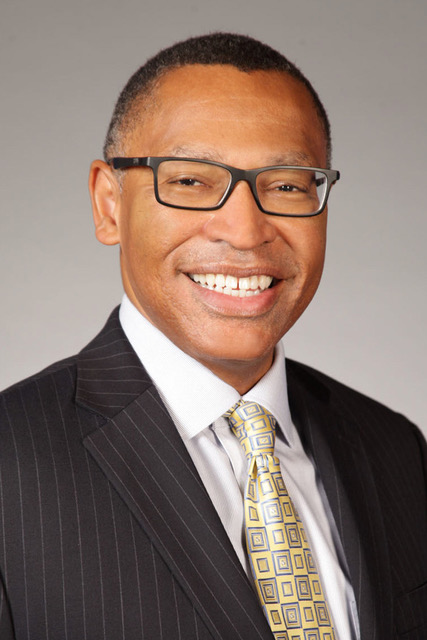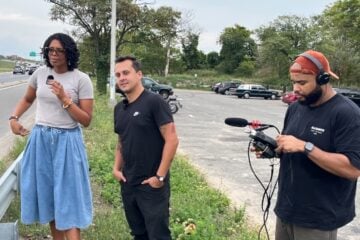Working group will help NPR develop new standards and ethics handbook

Canan turan / iStock
NPR is developing a new standards and ethics handbook that will tackle editorial issues facing its member stations across the country.

After putting out a call for Network Handbook Working Group candidates, which elicited over 70 applications from station staffers, NPR chose a dozen participants. The group is made up of three NPR staffers and nine journalists reflecting a diverse array of stations, from Honolulu to Washington, D.C.
The group will work together under Kenya Young, NPR’s managing editor for collaborative journalism, to create a handbook that supplements NPR’s existing guide. The guide will address questions about editorial language but will also examine station-specific issues, such as the editorial independence of stations licensed by school districts or universities.
Members will meet every other week over the next six months. The handbook could launch as early as this summer, according to Young.
“There’s a common goal to have editorial excellence and some consistency working together as one network and asking the same questions if there’s breaking news,” Young said. “We want to know how to describe the shooter. Are we using the same language across the stations? Are we using the same language in digital?”
Conversations about the handbook mirror discussions that stations around the country had last year surrounding the capitalization of the term “Black” when referring to race or ethnic identity, Young said.
“Every public media station is grappling with answering the same questions [and] trying to come up with that solution,” she said. “My main goal here is that we’re not in individual offices and individual stations all trying to figure it out by ourselves if we’re asking the same questions.”
Like NPR’s ethics handbook, which it released in 2012, the new handbook will be a living document that’s constantly updated.
“The language reflects the culture. The culture changes, and the language changes along with it,” said Tony Cavin, NPR managing editor for standards and practices. “What may have been sort of almost futuristic, certainly appropriate in 1975 or 1969, is seen as antiquated now. So this has to be a process more than a simple document etched in stone. We’re not going to go to the mountaintop and bring down the tablets — we’re going to help facilitate that conversation.”
The guide is meant to fill gaps in the ethics handbook, which focused on NPR but didn’t handle station-level problems. Those concerns include whether social media policies at smaller stations should apply to employees who aren’t public-facing reporters, said Mark Memmott, former NPR standards and practices editor who is now consulting on the handbook.
In his previous role at NPR, Memmott often expanded on the ethics handbook with his own editorial guidance, which he titled “Memmos.” After he became managing editor of public radio’s first regional journalism hub in Texas in 2019, he realized that local stations often struggled to find answers to their questions or someone who could provide feedback.
“As far as things like guidance on language regarding ‘officer-involved shootings,’ that does exist, and it was in the ‘Memmos’ and other places,” he said. “But it goes back to our desire to make it easier for stations and, frankly, inside NPR to find that sort of thing.”

For Terence Shepherd, news director at WLRN in Miami and a working group member, guidance on editorial independence will be a priority. Controversy erupted at WLRN in 2017 after Miami-Dade County Public Schools, which holds the station’s license, considered moving the station’s journalists under its own supervision. That could have threatened the station’s very existence, Shepherd said.
“I’m looking forward to this group coming up with a framework for dealing with these issues that are completely foreign to NPR and having a game plan for continuing to serve our communities while operating under the umbrella of another organization,” he said.
Working group members note that the handbook also provides an opportunity to rethink how journalists approach sources, particularly those from marginalized communities. Ross Terrell, another working group member and managing editor at KUER in Salt Lake City, has seen increasing coverage of the Bears Ears National Monument, a site considered sacred by many Native American tribes in Utah. At the same time, he finds journalists have a long way to go to build trust with native communities like those on the Navajo reservation.
“There’s a lot of community-building that we have to do,” he said. “And also realizing that technologically speaking, a lot of those communities don’t have internet, don’t have cell phones. So what’s the guidance on reaching those populations, spending time with them and taking part in some of their rituals that may be sacred?”
NPR selected a dozen journalists from headquarters and stations for the working group. The group will be led by Kenya Young, Tony Cavin, Mark Memmott and Kathy Goldgeier, network hub contact manager.
- Amanda Aronczyk, NPR
- Ku‘uwehi Hiraishi, Hawai‘i Public Radio
- Dennis Kellogg, Nebraska Public Media
- Asma Khalid, NPR
- Sara Plourde, New Hampshire Public Radio
- Arezou Rezvani, NPR
- Elliott Robinson, VPM
- Jan Ross P. Sakian, Texas Public Radio
- Helga Salinas, CapRadio, Sacramento, Calif.
- Terence Shepherd, WLRN, Miami
- Cheraine Stanford, WPSU, University Park, Penn.
- Ross Terrell, KUER, Salt Lake City






